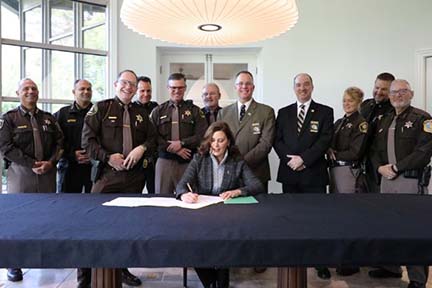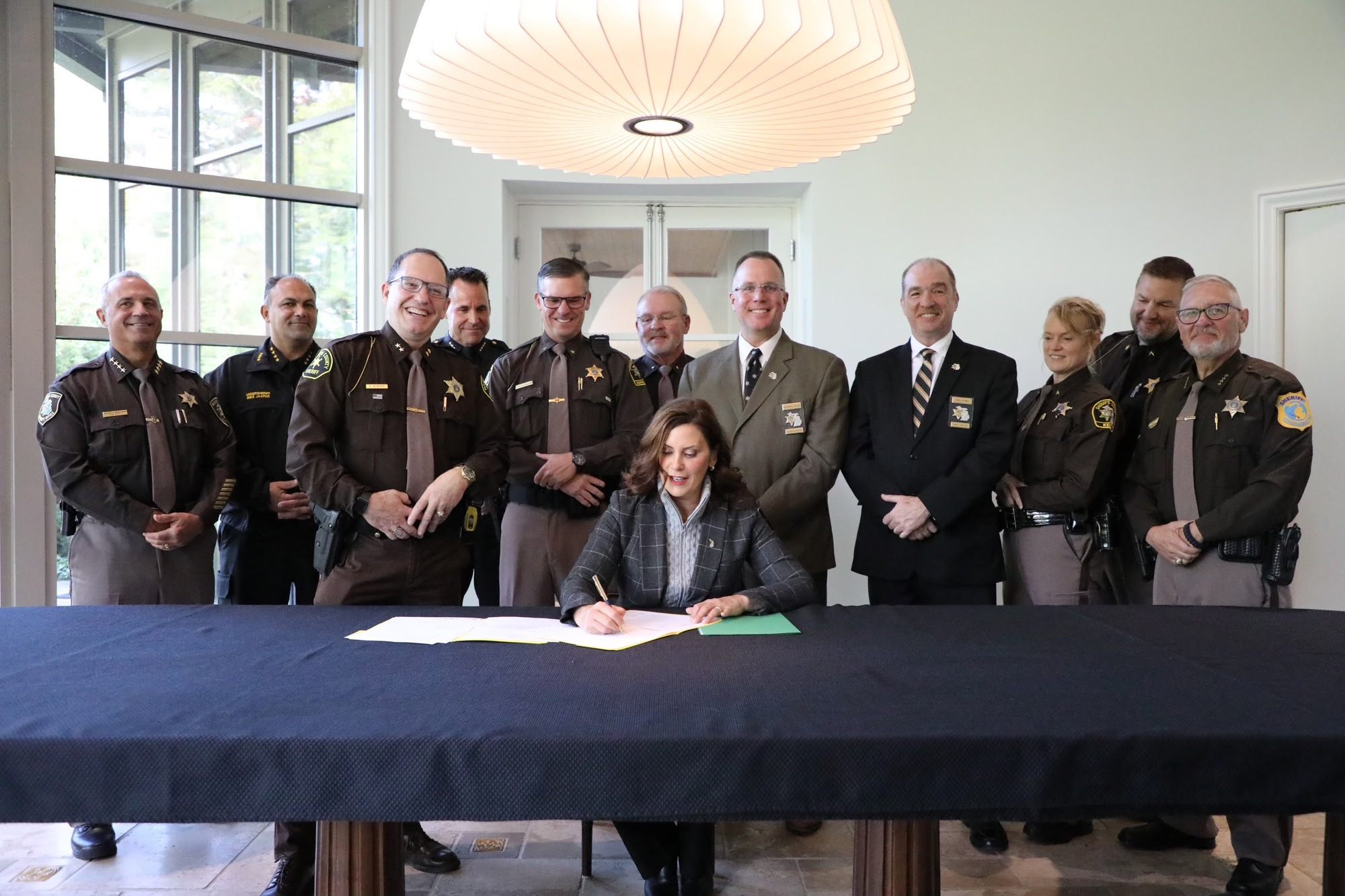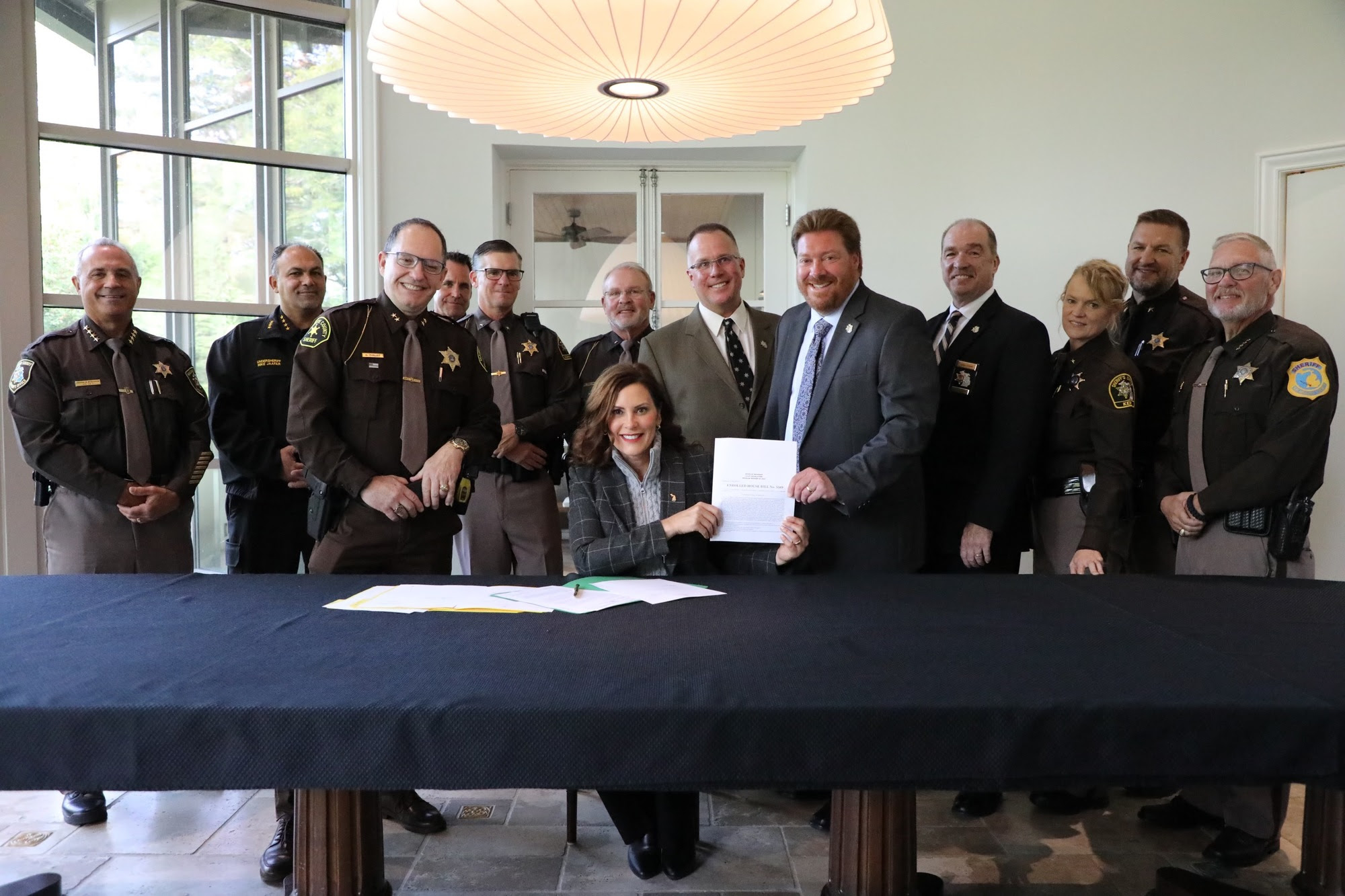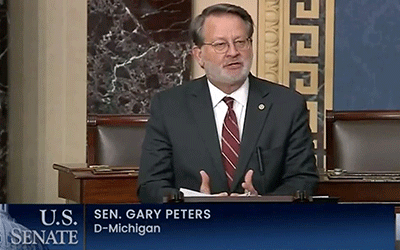
Funding by 50% to Put More Officers on the Road

FOR IMMEDIATE RELEASE September 27, 2022 Contact: [email protected]
Gov. Whitmer Signs Bipartisan Bills Increasing Road Patrol Funding by 50% to Put More Officers on the Road, Keep Communities Safe Building on public safety investments in budget, package of bills will increase funding to local departments, help them hire officers, investigate accidents, provide emergency assistance
LANSING, Mich. – Today, Governor Gretchen Whitmer signed three bipartisan bills increasing funding for the Secondary Road Patrol (SRP) program. These bills will keep drivers safe in their communities by putting more officers on the road, improving recruitment and retention efforts, and bolstering training. The bills build on the MI Safe Communities program the governor launched last summer to invest in local police, get illegal guns off the street, and expand opportunities in jobs, education, and the justice system.
“As a former prosecutor, public safety is a top priority for me,” said Governor Whitmer. “Today’s bipartisan bills will improve road safety by putting more officers out on patrol. The 50% increase in funding for the SRP program will also improve law enforcement recruitment and retention by bolstering the funding stream and enabling sheriff departments to give their officers more stability. I will work with anyone to protect public safety, and I am proud of the bipartisan budget I signed earlier this year that ensures law enforcement at every level, from the MSP to local departments, have the resources they need to keep people safe. No one should feel unsafe as they go to work, drop their kids off at school, or run errands in their neighborhoods. Let’s work together to protect public safety and keep drivers safe on the road.”
“I am thankful that both Governor Whitmer and the Legislature came together with a commonsense solution to the Sheriffs’ secondary road patrol concerns,” said Matt Saxton, Executive Director of the Michigan Sheriff’s Association. “These bills provide for stability in funding that will put additional deputies on our road to provide improved public safety response throughout the state of Michigan.”
Bipartisan Bills to Increase Road Safety Today, Governor Whitmer signed House Bills (HB) 5569, 5732, and 5772. Taken together, these bills will increase the SRP fund by $5 million each year, up from $10 million to $15 million. This increased, dedicated funding is now coming from the liquor fund so the SRP fund doesn’t have to rely on fees and general fund dollars each year which can be unpredictable. The additional funding will be used to add officers to the road, and the consistent funding source will allow sheriff departments to plan better and give officers more employment stability, improving their recruitment and retention efforts. The fees that previously funded the SRP will now be redirected to MCOLES for law enforcement training grants.
Secondary Road Patrol Program SRP funds efforts to monitor traffic violations, enforce the state’s criminal law, investigate accidents involving motor vehicles, and provide emergency assistance to Michiganders on or near a patrolled highway or road. The funds can be used for employing additional personnel, purchasing equipment, enforcing laws in state and county parks, and providing selective motor vehicle inspection programs.
Governor Whitmer’s Record Breaking Public Safety Investments As a former prosecutor, public safety is a core issue for Governor Whitmer. She has worked closely with local leaders, law enforcement officers, and community organizations to ensure people feel safe in their neighborhoods. Since taking office, she has signed four balanced, bipartisan budgets, each making record investments to help communities fund local law enforcement departments and hire more first responders. These budgets have expanded training and resources available to law enforcement from the MSP to local departments in every region of the state.
Last summer, the governor proposed MI Safe Communities, a plan to invest $75 million in federal funding from the American Rescue Plan to reduce crime and keep families safe by getting illegal firearms of the street, tackle the criminal court backlog, expand resources available to law enforcement, and address the root causes of crime by investing in jobs programs, counseling, and education.
Governor Whitmer’s Criminal Justice Investments Governor Whitmer has also worked across the aisle to enact historic criminal justice reform. She signed bipartisan “Clean Slate” legislation to help hundreds of thousands of Michiganders emerge from the criminal justice system with enhanced opportunities for jobs and housing, empowering them to pursue their full potential. She also launched task forces to address pretrial incarceration and juvenile justice and pursued reforms to improve relationships between law enforcement and the people they serve.
Governor Whitmer signed her fourth balanced, bipartisan budget that included funding for Jobs Court, a program that offers non-violent, low-level offenders gainful employment with local partnering small businesses.
|











